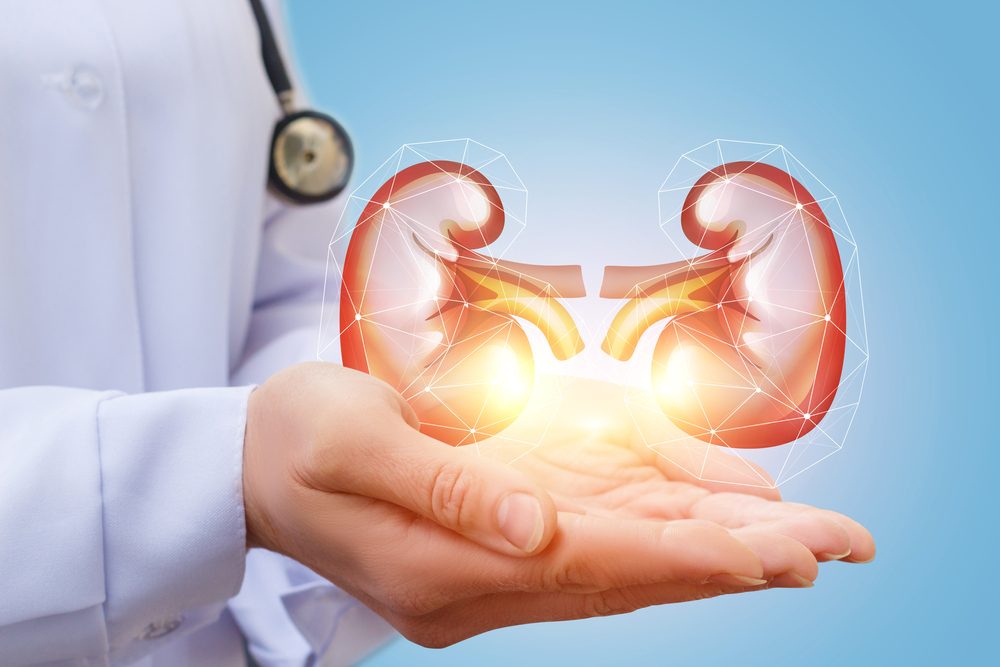For National Kidney Month, I Share My Experience with Chronic Kidney Disease

March is National Kidney Month, the perfect time to remind people with pulmonary hypertension (PH) to take care of their kidneys. I realize people with PH have plenty to keep track of. But PH affects my body as a whole, and yours, too.
I am on several diuretics to help with congestive heart failure, which puts extra strain on my kidneys. But remember that our bodies react to medications differently. I encourage you to speak with your PH medical team if you are curious about diuretics and chronic kidney disease (CKD). Even your local primary care doctor can order simple bloodwork to check your kidneys.
I have been taking extremely high doses of several diuretics for almost 15 years. I learned about CKD about five years ago and can still remember the day when a sweet and compassionate young doctor walked into my hospital room. She told my husband and me that I was experiencing complete kidney failure and held my hand to comfort me.
Of course, I began to cry. It was just another way in which I was “broken” or “messed up.”
When she left, I told my husband to leave me. I didn’t want my kidney failure to be another issue in our already complicated lives. But he reassured me by saying he was with me “in sickness and in health.” I am forever grateful that my loving husband takes our wedding vows seriously and continues to live by them today. I am one lucky woman!
For me, the most difficult issue is maintaining a fluid balance. My medical team works to prevent congestive heart failure, dehydration, and electrolyte abnormalities, which are just a few symptoms of CKD. I also struggle with back pain and itching that would drive anyone up a wall, especially at night. Sometimes I wake up with claw marks on my arms, even when I take the “itching” pill.
National Kidney Month is a time to raise awareness about kidney disease. The National Kidney Foundation reports that 37 million American adults have CKD, and millions more are at risk. Early detection can help prevent kidney failure in most cases.
Asking your doctor to check your kidney function is a start. Certain medications often can be the culprit in CKD. Our kidneys act as filters, so when someone has CKD, doctors are more careful about ordering medications. To prevent CKD, diabetes and high blood pressure should be kept under control. Limiting processed foods with high amounts of sodium also is important.
Please be sure to keep track of your kidney health. PH doesn’t just affect the lungs, it affects the entire body. Ask your medical team to run tests to check your kidneys. Hopefully, this will prevent issues in the future.
Has PH affected your kidneys? Does your doctor routinely check your kidney function? If not, do you plan to ask your doctor about your kidneys? Let us know in the comments below.
***
Note: Pulmonary Hypertension News is strictly a news and information website about the disease. It does not provide medical advice, diagnosis, or treatment. This content is not intended to be a substitute for professional medical advice, diagnosis, or treatment. Always seek the advice of your physician or other qualified health provider with any questions you may have regarding a medical condition. Never disregard professional medical advice or delay in seeking it because of something you have read on this website. The opinions expressed in this column are not those of Pulmonary Hypertension News or its parent company, Bionews Services, and are intended to spark discussion about issues pertaining to pulmonary hypertension.








Leave a comment
Fill in the required fields to post. Your email address will not be published.